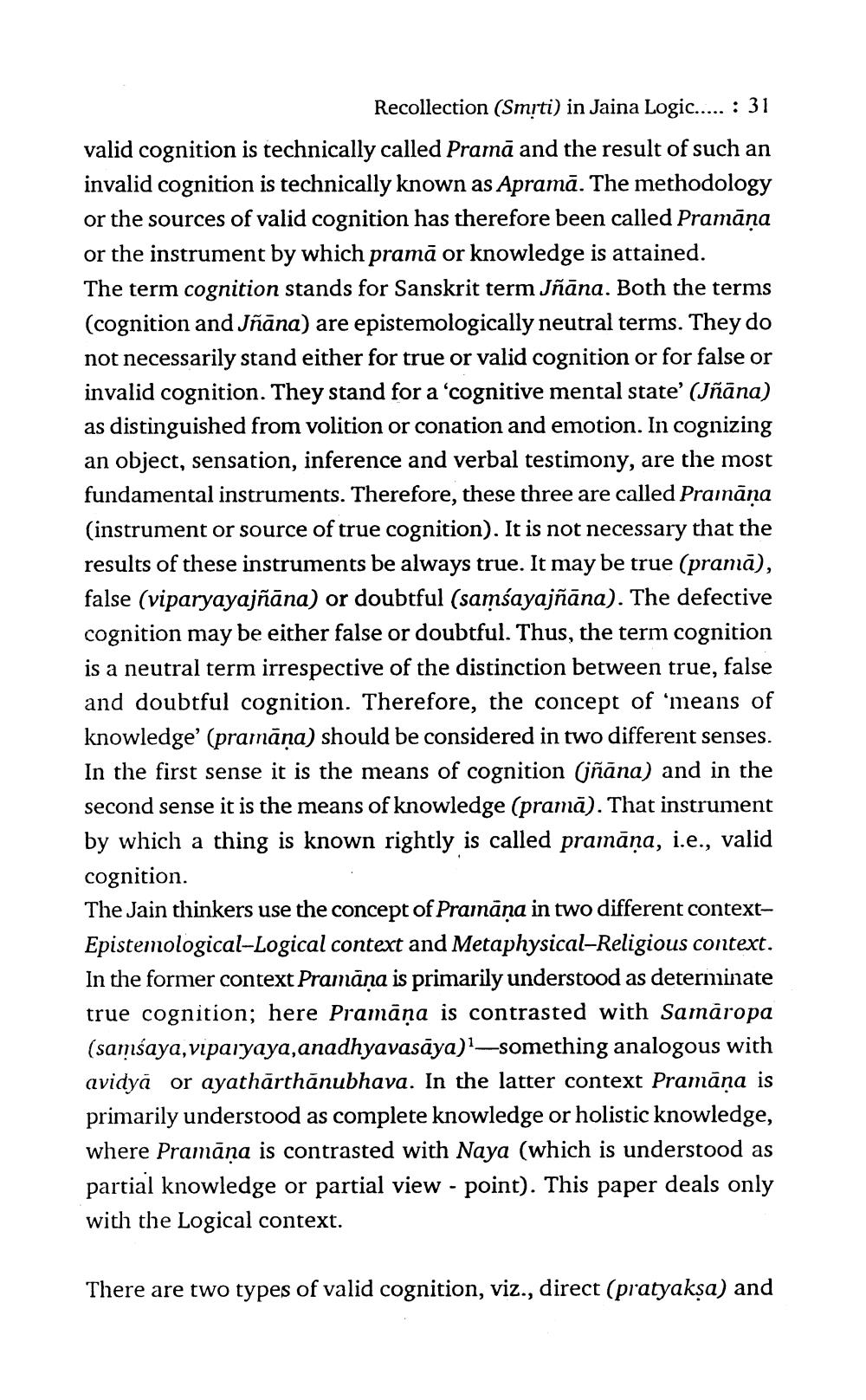________________
Recollection (Smrti) in Jaina Logic..... : 31 valid cognition is technically called Pramā and the result of such an invalid cognition is technically known as Apramā. The methodology or the sources of valid cognition has therefore been called Pramāņa or the instrument by which pramā or knowledge is attained. The term cognition stands for Sanskrit term Jñāna. Both the terms (cognition and Jñāna) are epistemologically neutral terms. They do not necessarily stand either for true or valid cognition or for false or invalid cognition. They stand for a 'cognitive mental state' (Jñāna) as distinguished from volition or conation and emotion. In cognizing an object, sensation, inference and verbal testimony, are the most fundamental instruments. Therefore, these three are called Praināņa (instrument or source of true cognition). It is not necessary that the results of these instruments be always true. It may be true (pramā), false (viparyayajñāna) or doubtful (samsayajñāna). The defective cognition may be either false or doubtful. Thus, the term cognition is a neutral term irrespective of the distinction between true, false and doubtful cognition. Therefore, the concept of 'means of knowledge' (pramāņa) should be considered in two different senses. In the first sense it is the means of cognition (jñāna) and in the second sense it is the means of knowledge (pramā). That instrument by which a thing is known rightly is called pramāṇa, i.e., valid cognition. The Jain thinkers use the concept of Pramnāņa in two different contextEpistemological-Logical context and Metaphysical-Religious context. In the former context Pramāna is primarily understood as determinate true cognition; here Pramāṇa is contrasted with Samāropa (samsaya,viparyaya,anadhyavasāya)?—something analogous with avidyā or ayathārthānubhava. In the latter context Pramāṇa is primarily understood as complete knowledge or holistic knowledge, where Pramāna is contrasted with Naya (which is understood as partial knowledge or partial view - point). This paper deals only with the Logical context.
There are two types of valid cognition, viz., direct (pratyakşa) and




